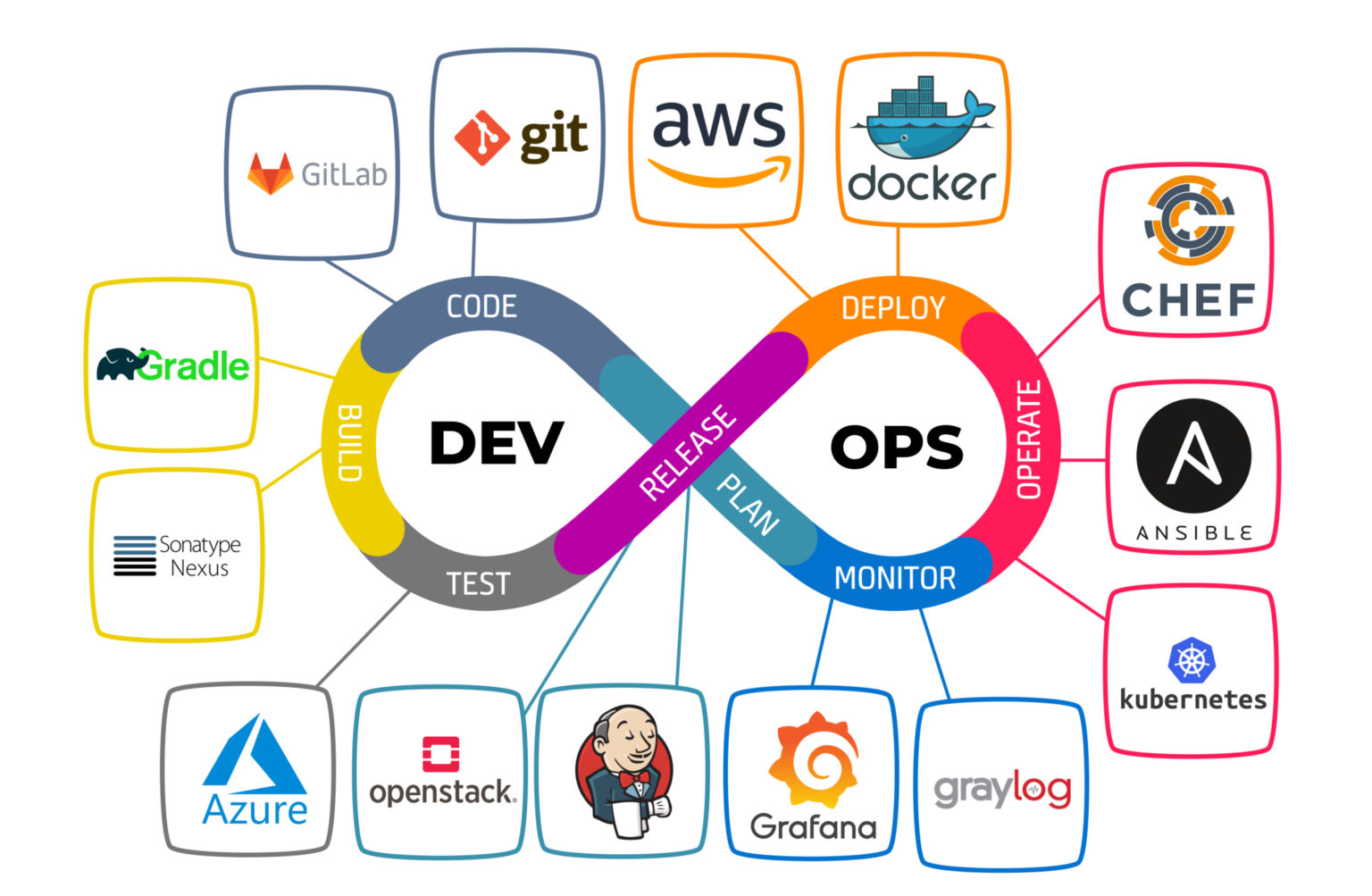In the fast-paced world of software development, where businesses demand faster releases, greater stability, and zero downtime, one role has quietly become indispensable — the DevOps Engineer.
DevOps engineers sit at the intersection of development and operations, ensuring that code written by developers moves smoothly and safely into production environments. They automate, monitor, and optimize the entire software delivery pipeline — a job that requires both technical depth and big-picture understanding.
What Is DevOps?
The term DevOps blends “Development” and “Operations.” It’s not just a job title but a culture and practice that encourages collaboration between software developers and IT operations teams. The main goal is to shorten the software development life cycle while maintaining high quality through continuous integration (CI) and continuous deployment (CD).
In simple terms, DevOps ensures that when a developer writes code, it can be tested, integrated, and deployed automatically without manual bottlenecks — a key advantage in today’s agile-driven organizations.
Role of a DevOps Engineer
A DevOps engineer acts as the bridge between coding and deployment. Their responsibility is to streamline workflows, reduce manual errors, and maintain consistency across environments.
They oversee CI/CD pipelines, manage infrastructure as code, and implement automated testing and monitoring systems. Beyond technical implementation, they also play a strategic role in aligning development efforts with business goals — ensuring reliability, scalability, and speed.
A DevOps engineer’s day might include writing scripts to automate builds, configuring servers in the cloud, deploying containerized applications using Docker or Kubernetes, or troubleshooting deployment failures during releases.
Key Responsibilities
While the role varies across organizations, most DevOps engineers handle tasks such as:
- Setting up CI/CD pipelines for seamless code integration and delivery
- Managing cloud infrastructure on platforms like AWS, Azure, or Google Cloud
- Using configuration management tools such as Ansible, Puppet, or Chef
- Implementing containerization and orchestration with Docker and Kubernetes
- Monitoring applications and system health using tools like Prometheus, Grafana, or ELK Stack
- Ensuring security compliance and infrastructure resilience
- Collaborating with developers, QA teams, and system administrators
Educational Path and Required Skills
To become a DevOps engineer, most professionals start with a Bachelor’s degree in Computer Science, Information Technology, or Software Engineering. However, real-world experience and certifications often carry as much weight as formal education.
Academic Background
- Bachelor’s Degree: Typically in Computer Science, IT, or related fields.
- Master’s Degree (Optional): Some go on to earn advanced degrees to specialize in cloud computing, cybersecurity, or systems architecture.
Certifications That Help
While not mandatory, certifications can give a strong edge in the U.S. job market:
- AWS Certified DevOps Engineer – Professional
- Microsoft Certified: DevOps Engineer Expert
- Google Professional Cloud DevOps Engineer
- Docker Certified Associate
- Kubernetes Administrator (CKA)
Essential Technical Skills
DevOps engineers must be fluent in both software development and systems operations.
They typically know:
- Programming and scripting (Python, Bash, or Go)
- Linux/Unix administration
- Cloud platforms (AWS, Azure, GCP)
- CI/CD tools (Jenkins, GitLab CI, CircleCI)
- Infrastructure as Code (IaC) using Terraform or CloudFormation
- Monitoring and logging systems
- Networking and security basics
But beyond these, the most valuable skill is automation thinking — finding ways to make systems self-sustaining, predictable, and efficient.
Soft Skills That Make a Difference
DevOps is as much about culture as it is about tools. Engineers in this field must have:
- Collaboration and communication abilities to work across teams.
- Problem-solving mindset — handling production issues under pressure.
- Adaptability to evolving technologies and methodologies.
- Analytical thinking to interpret data and optimize performance.
A DevOps engineer isn’t a “jack of all trades” — they are strategic connectors who keep every moving part of the software ecosystem in sync.
Career Growth and Opportunities
In the U.S., DevOps engineering has rapidly become one of the most sought-after and well-paid roles in technology.
According to Glassdoor and Indeed data (2025), average salaries for DevOps engineers range between $110,000 and $155,000 per year, depending on experience, location, and cloud expertise.
Major tech hubs like San Francisco, Seattle, Austin, and Boston offer even higher compensation due to demand.
Career growth typically follows paths like:
- DevOps Engineer → Senior DevOps Engineer → Lead Engineer → DevOps Architect
- Some transition into Site Reliability Engineering (SRE) or Cloud Engineering, while others move into engineering management or CTO roles in startups.
With the rise of automation, edge computing, and hybrid cloud systems, the future demand for DevOps expertise will only intensify.
Why DevOps Matters to Modern Business
DevOps practices enable companies to:
- Deliver updates faster and more frequently
- Reduce downtime and deployment failures
- Enhance collaboration between development and operations
- Build more scalable, resilient, and secure systems
- Improve customer satisfaction through continuous innovation
In industries like e-commerce, fintech, and healthcare, where uptime and data security are critical, DevOps has become the invisible backbone of business success.
Challenges in the DevOps Journey
Despite its benefits, implementing DevOps is not always smooth. Common challenges include:
- Resistance to cultural change within teams
- Overlapping tools and unclear ownership
- Balancing speed with security and compliance
- Keeping up with ever-changing technologies
Yet, successful DevOps engineers thrive in this environment because they see these challenges as opportunities to innovate and improve.
Conclusion
A DevOps Engineer is far more than just a systems administrator with coding skills — they’re the linchpins of modern software delivery.
Their work ensures that code travels from development to deployment seamlessly, quickly, and securely.
For anyone passionate about both coding and infrastructure, DevOps offers a career that’s both technically rewarding and strategically vital.
As businesses continue to digitize and automate, DevOps engineers will remain the backbone of continuous integration and deployment — keeping the digital world running, one pipeline at a time.

